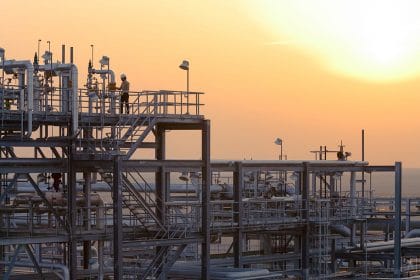Through the state-owned company Aramco, Saudi Arabia plans to raise its oil production from 12 million BPD to 13 million BPD. The sell-off was as a result of the production disagreement with non-OPEC member Russia.
Saudi Arabia, a major crude oil producer, announced that it plans to raise oil production to counter the low prices in the market. Through its state-owned company Aramco, the Saudi energy ministry stated that it will ramp up oil production from the current 12 million BPD to 13 million BPD. The announcement will escalate an oil prices war with Russia, a non-OPEC member, which is also a big crude oil producer.
In the past week, the crude oil prices have drastically dropped from $57 per barrel, to trade below $40. The huge drop is attributed to the decline in the oil demand globally, which has been resulted by the ongoing coronavirus outbreak.
According to data from the international benchmark, Brent crude oil future, the price per barrel fell sharply to retest 2008, and 2015 level. This was a 3.84% drop in a week, which gave the impression of worse economic time lurking ahead, since the oil price has almost halved from January 2020.
An economist from Economist Intelligence Unit (EIU) Cailin Birch argued that the bold move to ramp up oil production only confirms that the Saudis are trying to put pressure on Russia and the United States. Cailin said:
“By sending the signal that they will flood the market as soon as possible, they may be hoping to either force Russia back to the negotiating table or to prompt a wave of bankruptcies and investment cut in the U.S that would have a noticeable impact on shale production.”
Bigger Picture of the Saudi-Russia Oil Prices War
The war on oil production has greatly affected both positively and negatively other sectors of the economy. Industries that make use of oil products in their daily operation are enjoying low prices, hence greater profits due to low production cost. However, other industries like solar energy and the electric automobile companies which are competitors to the oil industries have suffered the most.
With people turning to use oil as an alternative energy source since it’s cheaper, the stock markets for the competitors continue bleeding out. Nonetheless, it is not to be ruled out the effect that the war on oil production has on small producing countries, which cannot compete with the big pins.
If the coronavirus outbreak continues spreading fears and panic across the globe, the global economy will be at stake, whereby, the 2008 economic crisis might be a shadow of what is awaiting ahead. The oil demand will continue falling caused by the ongoing cities’ lockdown that is halting operations like travel.
next